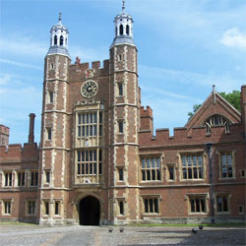The Independent Schools Council was the real winner of the Upper Tribunal hearing into public benefit of private schools, no matter how others might spin it, says Tania Mason.
Last week, in his address to the CLA Conference, Christopher McCall QC said the growing expense of charity litigation today was matched only by the length of judgments. The problem with complex judgments running to 100 pages or more is that everyone can take the bits they like, ignore the rest, and put their own spin on it. Take the Upper Tribunal’s 116-page decision on the Independent Schools Council’s judicial review of the Charity Commission’s guidance on public benefit. Reading all the reactions to it on Friday, you’d be forgiven for thinking the judges had published several different versions, all concluding different things.
The ISC (the litigant) said: “We won!” The NCVO (an intervener) said: “No you didn’t, charities did, because there’s now more clarity around the issue.” Law firm Stone King (an interested observer) said: “No you didn’t, but there’s still no clarity around the issue and never will be because it’s political.”
The subdued nature of the Charity Commission’s response offered some insight into the truth of the matter. It knew the writing was on the wall all along; it already began rewriting its public benefit guidance some months ago. What seems to have been forgotten in all the furore is the fact that the Commission was only handed this particular hot potato because Parliament bottled it and refused to define public benefit itself. Everyone accepted at the time that it was an impossible and thankless task – which it has indeed proved to be.
With the greatest of respect to the integrity of the Tribunal judges, they were hardly going to hand the Commission the power to strip independent schools of their charitable status – and their tax breaks - with a privately-educated Conservative Prime Minister in power and Her Majesty’s Attorney General breathing down their necks. This is still Britain in the 21st century, after all. Jonathan Burchfield at Stone King hit the nail on the head when he said: “There can ultimately be no clarity on all the questions arising without a political conclusion to what is a political debate - namely, whether independent schools should have the benefit of the fiscal advantages available to charities, not whether they are, legally, charities.” In the absence of this debate, we have the judgement that we have, and essentially the ISC is right – it did win.
But what is intriguing is the lily-livered response from the NCVO. The NCVO intervened in the case ostensibly because it said the outcome would have implications for the whole sector. But the umbrella body has been chipping away at the notion of private schools as charities for many years: in 2003 it spearheaded a group called the Charities Bill Coalition which lobbied for new charity legislation that would challenge the automatic presumption that public schools provide public benefit. At the time an NCVO spokesman said: “What message does it give to the public if places like Eton are considered charities?”
And in 2005 the umbrella body supported an amendment to the Charities Bill that would have required the Charity Commission to “consider the effect on public benefit of the charging policy of any charity” before writing its guidance for charities on public benefit. But the amendment, tabled by Lord Phillips, failed after the House of Lords voted against it by 139 to 60.
So for the NCVO to now conclude that the Tribunal’s decision was a “victory for charities and the public” seems like a cop-out. The NCVO should be up in arms, voicing outrage, kicking up dust. Because at the end of the day, this judgment means that independent schools can carry on doing pretty much whatever they like, and no one’s going to stop them.









